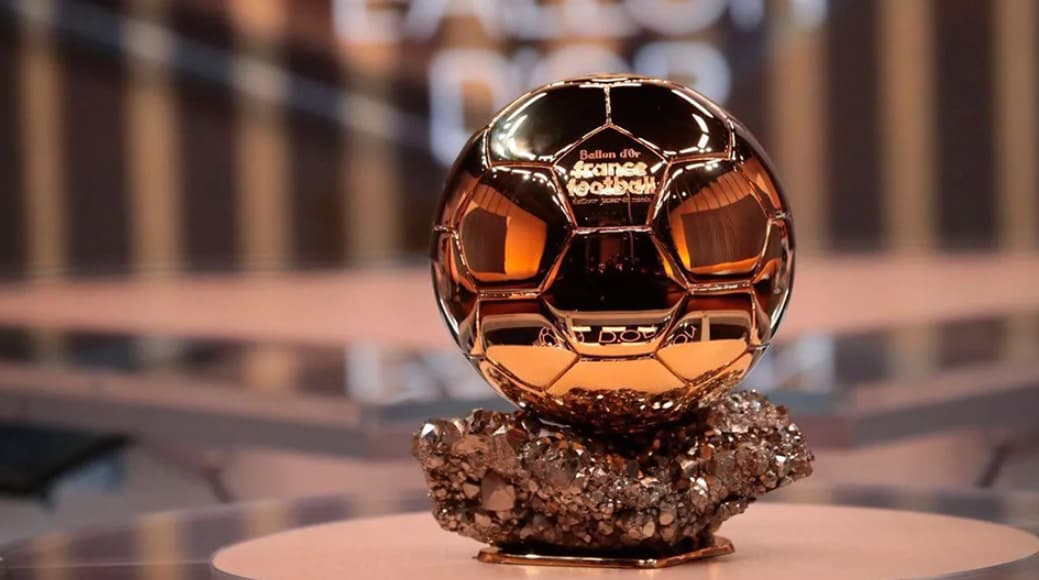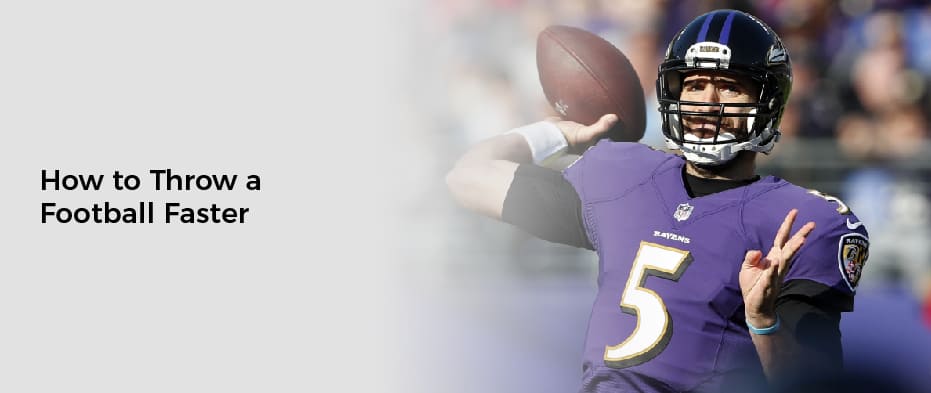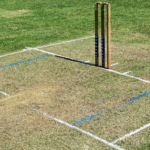Football’s most coveted individual prize has been awarded annually since 1956, creating an incredible ballon d’or winners list that reads like a who’s who of football legends.
Every year, one player joins this exclusive club of sporting immortals, earning recognition as the world’s finest footballer.
The journey from Stanley Matthews breaking new ground as the first recipient to Rodri’s groundbreaking victory in 2024 tells the fascinating story of how football has evolved across seven decades.
This prestigious award has witnessed the rise of legendary figures like Pelé (who would have won multiple times if eligible), Diego Maradona, Lionel Messi, and Cristiano Ronaldo – players who didn’t just excel individually but transformed the very nature of football itself.
The Golden Ball represents more than personal achievement; it symbolizes excellence, dedication, and the pursuit of sporting perfection.
Understanding this award means appreciating the highest standards in professional football, from technical brilliance and tactical intelligence to leadership qualities and character.
Ballon d’Or Winners List

Whether you’re a devoted football enthusiast or someone discovering the sport’s rich history, learning about this prestigious honor provides insight into what separates good players from true legends and why certain moments in football become eternal.
List of Men’s Ballon d’Or Award Winners
The complete championship roll from 1956 to 2024:
| Year | Player | Nationality | Club |
|---|---|---|---|
| 2024 | Rodri | Spain | Manchester City |
| 2023 | Lionel Messi | Argentina | Inter Miami |
| 2022 | Karim Benzema | France | Real Madrid |
| 2021 | Lionel Messi | Argentina | Paris Saint-Germain |
| 2020 | Not awarded | COVID-19 | N/A |
| 2019 | Lionel Messi | Argentina | Barcelona |
| 2018 | Luka Modric | Croatia | Real Madrid |
| 2017 | Cristiano Ronaldo | Portugal | Real Madrid |
| 2016 | Cristiano Ronaldo | Portugal | Real Madrid |
| 2015 | Lionel Messi | Argentina | Barcelona |
| 2014 | Cristiano Ronaldo | Portugal | Real Madrid |
| 2013 | Cristiano Ronaldo | Portugal | Real Madrid |
| 2012 | Lionel Messi | Argentina | Barcelona |
| 2011 | Lionel Messi | Argentina | Barcelona |
| 2010 | Lionel Messi | Argentina | Barcelona |
| 2009 | Lionel Messi | Argentina | Barcelona |
| 2008 | Cristiano Ronaldo | Portugal | Manchester United |
| 2007 | Kaká | Brazil | Milan |
| 2006 | Fabio Cannavaro | Italy | Real Madrid |
| 2005 | Ronaldinho | Brazil | Barcelona |
| 2004 | Andriy Shevchenko | Ukraine | Milan |
| 2003 | Pavel Nedvěd | Czech Republic | Juventus |
| 2002 | Ronaldo | Brazil | Real Madrid |
| 2001 | Michael Owen | England | Liverpool |
| 2000 | Luís Figo | Portugal | Real Madrid |
| 1999 | Rivaldo | Brazil | Barcelona |
| 1998 | Zinedine Zidane | France | Juventus |
| 1997 | Ronaldo | Brazil | Internazionale |
| 1996 | Matthias Sammer | Germany | Borussia Dortmund |
| 1995 | George Weah | Liberia | Milan |
| 1994 | Hristo Stoichkov | Bulgaria | Barcelona |
| 1993 | Roberto Baggio | Italy | Juventus |
| 1992 | Marco van Basten | Netherlands | Milan |
| 1991 | Jean-Pierre Papin | France | Marseille |
| 1990 | Lothar Matthäus | Germany | Internazionale |
| 1989 | Marco van Basten | Netherlands | Milan |
| 1988 | Marco van Basten | Netherlands | Milan |
| 1987 | Ruud Gullit | Netherlands | Milan |
| 1986 | Igor Belanov | Soviet Union | Dynamo Kyiv |
| 1985 | Michel Platini | France | Juventus |
| 1984 | Michel Platini | France | Juventus |
| 1983 | Michel Platini | France | Juventus |
| 1982 | Paolo Rossi | Italy | Juventus |
| 1981 | Karl-Heinz Rummenigge | West Germany | Bayern Munich |
| 1980 | Karl-Heinz Rummenigge | West Germany | Bayern Munich |
| 1979 | Kevin Keegan | England | Hamburg |
| 1978 | Kevin Keegan | England | Hamburg |
| 1977 | Allan Simonsen | Denmark | Borussia Mönchengladbach |
| 1976 | Franz Beckenbauer | West Germany | Bayern Munich |
| 1975 | Oleg Blokhin | Soviet Union | Dynamo Kyiv |
| 1974 | Johan Cruyff | Netherlands | Barcelona |
| 1973 | Johan Cruyff | Netherlands | Barcelona |
| 1972 | Franz Beckenbauer | West Germany | Bayern Munich |
| 1971 | Johan Cruyff | Netherlands | Ajax |
| 1970 | Gerd Müller | West Germany | Bayern Munich |
| 1969 | Gianni Rivera | Italy | Milan |
| 1968 | George Best | Northern Ireland | Manchester United |
| 1967 | Flórián Albert | Hungary | Ferencvárosi TC |
| 1966 | Bobby Charlton | England | Manchester United |
| 1965 | Eusébio | Portugal | Benfica |
| 1964 | Denis Law | Scotland | Manchester United |
| 1963 | Lev Yashin | Soviet Union | Dynamo Moscow |
| 1962 | Josef Masopust | Czechoslovakia | Dukla Prague |
| 1961 | Omar Sívori | Italy | Juventus |
| 1960 | Luis Suárez | Spain | Barcelona |
| 1959 | Alfredo Di Stéfano | Argentina/Spain | Real Madrid |
| 1958 | Raymond Kopa | France | Real Madrid |
| 1957 | Alfredo Di Stéfano | Argentina/Spain | Real Madrid |
| 1956 | Stanley Matthews | England | Blackpool |
What is Ballon d’Or?
The Ballon d’Or stands as football’s supreme individual honor, representing the pinnacle of personal achievement in the world’s most popular sport.
Created by France Football magazine in 1956, this golden trophy has become the ultimate symbol of footballing excellence.
Understanding the Award
Core concepts about the Golden Ball:
- Name origin: “Ballon d’Or” translates to “Golden Ball” in French
- Annual tradition: Presented every year since 1956 (except 2020)
- Global recognition: Most prestigious individual award in world football
- Voting authority: Decided by an international panel of specialist journalists
- Selection period: Based on full season performance (August to July)
Voting Mechanics
The selection process operates through a carefully structured system:
Voter Composition:
- 100 specialist journalists from FIFA’s top-ranked nations
- One representative per country ensures a global perspective
- Expert knowledge required – sports writers with proven credentials
- Independent voting without external influence or pressure
Scoring System:
- 30-player shortlist created by editorial committee
- Top 5 selections made by each journalist
- Point allocation: 6 points (1st), 4 points (2nd), 3 points (3rd), 2 points (4th), 1 point (5th)
- Highest total determines the winner
- Tie-breaking: Most first-place votes decide in case of equal points
Evaluation Criteria
Three fundamental pillars guide voting decisions:
Individual Excellence:
- Statistical performance, including goals, assists, and positional metrics
- Technical mastery demonstrated through skill and creativity
- Consistency levelsare maintained throughout the season
- Impact moments in crucial matches and competitions
Collective Success:
- Trophy achievements with both club and national teams
- Leadership demonstration during important competitions
- Team contribution beyond personal statistics
- Decisive performances in the finals and knockout stages
Professional Conduct:
- Sporting behavior on the field during matches
- Fair play attitude toward opponents and officials
- Off-field character and role model qualities
- Respect demonstration for the game and its values
Historical Development
The award’s evolution reflects football’s global expansion:
Foundation Era (1956-1994):
- European exclusivity – only players from European countries eare ligible
- Limited scope with 16 UEFA member nations voting
- Regional focus reflecting football’s European dominance
- Pioneering winners like Matthews, Di Stéfano, and Cruyff
First Expansion (1995-2006):
- Club-based eligibility – any player at European clubs could win
- Geographic diversity with Weah (Africa) and Ronaldo (South America)
- Increased competition as more nations produced elite talent
- Growing global interest and media coverage
Modern Global Era (2007-present):
- Universal eligibility for all professional players worldwide
- Expanded voting to include coaches and captains (2007-2015)
- FIFA partnership creating “FIFA Ballon d’Or” (2010-2015)
- Return to origins with journalist-only voting (2016-present)
- Women’s category addition in 2018
Who Can Win Ballon d’Or Award?
While theoretically any professional footballer can achieve this honor, specific patterns and characteristics define successful candidates across the award’s history.
Fundamental Requirements
Basic eligibility standards for consideration:
- Professional status with a recognized football club
- Active participation during the judged season
- Minimum appearances typically around 15-20 matches
- Clean disciplinary record without major suspensions
- Committee nomination from the initial candidate pool
Championship Profile Analysis
Successful winners typically demonstrate:
Peak Performance Indicators:
- Age range: Most winners are between 23-31 years old
- Career stage: Usually 4-8 years of elite-level experience
- Physical prime: Combining maturity with athletic peak
- Mental strength: Handling pressure in crucial moments
Statistical Excellence:
- Attacking players: High goal and assist numbers
- Midfielders: Creative metrics and game control statistics
- Defenders: Leadership stats and crucial defensive actions
- Goalkeepers: Save percentages and clean sheet records
Positional Success Rates
Historical analysis reveals clear patterns:
Forwards and Wingers (Highest Success Rate):
- Natural advantage through goal-scoring visibility
- Media appeal with spectacular and memorable moments
- Statistical clarity makes achievements easy to measure
- Recent examples: Messi, Ronaldo, Benzema
Creative Midfielders (Strong Contenders):
- Game control abilities are highly valued by experts
- Assist production in complementing team success
- Technical brilliance appreciated by knowledgeable voters
- Notable winners: Modric, Kaká, Zidane
Defensive Midfielders (Rare but Possible):
- Recent breakthrough with Rodri’s 2024 victory
- Requires exceptional leadership and trophy success
- Team performance is more crucial than individual stats
- Historical examples: Matthäus (1990)
Center-Backs (Extremely Rare):
- Tournament leadership usually necessary for recognition
- Captaincy role essential for defensive players
- Major trophy victories required for consideration
- Only examples: Cannavaro (2006), Beckenbauer (1972, 1976)
Goalkeepers (Nearly Impossible):
- Single winner in award history (Yashin, 1963)
- Exceptional circumstances needed for recognition
- Tournament heroics and record-breaking performances required
- Structural disadvantage due to position’s nature
Competition Impact Factors
Tournament success significantly influences voting outcomes:
World Cup Influence:
- Dominant factor in World Cup years
- Tournament winners receive massive voting boosts
- Individual awards like the Golden Boot enhance chances
- Memorable performances create lasting voter impressions
Continental Championships:
- European Championship success crucial for European players
- Copa America victories benefit South American candidates
- Player of Tournament honors carry significant weight
- National team leadership demonstrates complete player qualities
Club Competition Success:
- Champions League victories provide enormous advantages
- Domestic league titles show sustained excellence
- Cup competitions add to overall achievement portfolio
- Record-breaking performances in major competitions
FAQs on Ballon d’Or Winners List:
- Who holds the record for most Ballon d’Or victories?
Lionel Messi dominates with 8 total wins (2009, 2010, 2011, 2012, 2015, 2019, 2021, 2023), making him the most successful recipient in history. Cristiano Ronaldo follows with 5 victories (2008, 2013, 2014, 2016, 2017).
- Why was no award given in 2020?
The 2020 ceremony was cancelled due to the COVID-19 pandemic. France Football determined that disrupted seasons, postponed competitions, and altered schedules made fair evaluation impossible for that year.
- Does a woman’s equivalent exist?
Yes, the Ballon d’Or Féminin has been awarded since 2018. Aitana Bonmatí (Barcelona) won in 2023 and 2024, while Alexia Putellas (Barcelona) claimed the inaugural awards in 2021 and 2022.
- Who achieved victory at the youngest age?
Ronaldo (Brazilian striker) won at 21 years and 96 days in 1997 while playing for Internazionale, making him the youngest recipient in award history.
- Has any goalkeeper besides Yashin ever won?
Lev Yashin remains the sole goalkeeper to win the Ballon d’Or (1963), highlighting the extreme difficulty for keepers to receive recognition despite their crucial role.
- Which nation has produced the most winners?
Argentina leads with 9 total victories, primarily through Messi’s dominance. Brazil follows with 8 different winners, while Portugal has 7 wins, mostly from Ronaldo’s success.
How does this differ from FIFA’s The Best award?
The Ballon d’Or uses exclusively journalist votes, while FIFA’s The Best incorporates national team coaches, captains, and public voting alongside media representatives.
- What made Rodri’s 2024 victory significant?
Rodri’s triumph marked the first defensive midfielder to won since 1990, based on his exceptional performances for Manchester City (Premier League champions) and Spain (European Championship winners).
- Can players win in consecutive years?
Absolutely. Lionel Messi achieved four consecutive victories (2009-2012), while Michel Platini won three straight (1983-1985), demonstrating sustained excellence.
- When and where is the ceremony held?
The annual ceremony takes place in October/November in Paris, France, at prestigious venues like the Théâtre du Châtelet, featuring football’s biggest stars.
Also Check:
- Top 10 Richest Footballer in The World
- Paraguay National Football Team vs Brazil National Football Team Lineups
- Georgia National Football Team Vs Portugal National Football Team Lineups
- Argentina National Football Team Vs Bolivia National Football Team Lineups
- Mexico National Football Team Vs USMNT Lineups
Conclusion:
The Ballon d’Or represents football’s highest individual achievement, creating a prestigious ballon d’or winners list that chronicles nearly seven decades of sporting excellence.
From Stanley Matthews’ pioneering victory in 1956 to Rodri’s historic triumph in 2024, each recipient has demonstrated exceptional talent, unwavering dedication, and remarkable achievements that inspire millions worldwide.
This evolution from a European-only award to a truly global celebration reflects football’s transformation into the world’s universal language.
The diverse ballon d’or winners list featuring players from every continent demonstrates that excellence knows no boundaries and that greatness can emerge from anywhere on Earth.
Rodri’s groundbreaking 2024 victory as a defensive midfielder proves that the award recognizes complete football mastery, not just spectacular goals or flashy skills.
His success opens new possibilities for future players in traditionally undervalued positions, showing that every role on the pitch can achieve the highest recognition.
For aspiring footballers everywhere, this ballon d’or winners list provides the ultimate roadmap: combine natural talent with relentless work ethic, pursue team success alongside personal excellence, and maintain professional character throughout your career.
The next name added to this exclusive list could come from any nation, any background, and any position.
Understanding the Ballon d’Or means appreciating football’s greatest achievements and the extraordinary individuals who have elevated the sport to artistic levels.
Whether you’re a lifelong supporter or new to football, this award represents everything beautiful about the game – skill, dedication, teamwork, and the pursuit of perfection that makes football the world’s most beloved sport.








